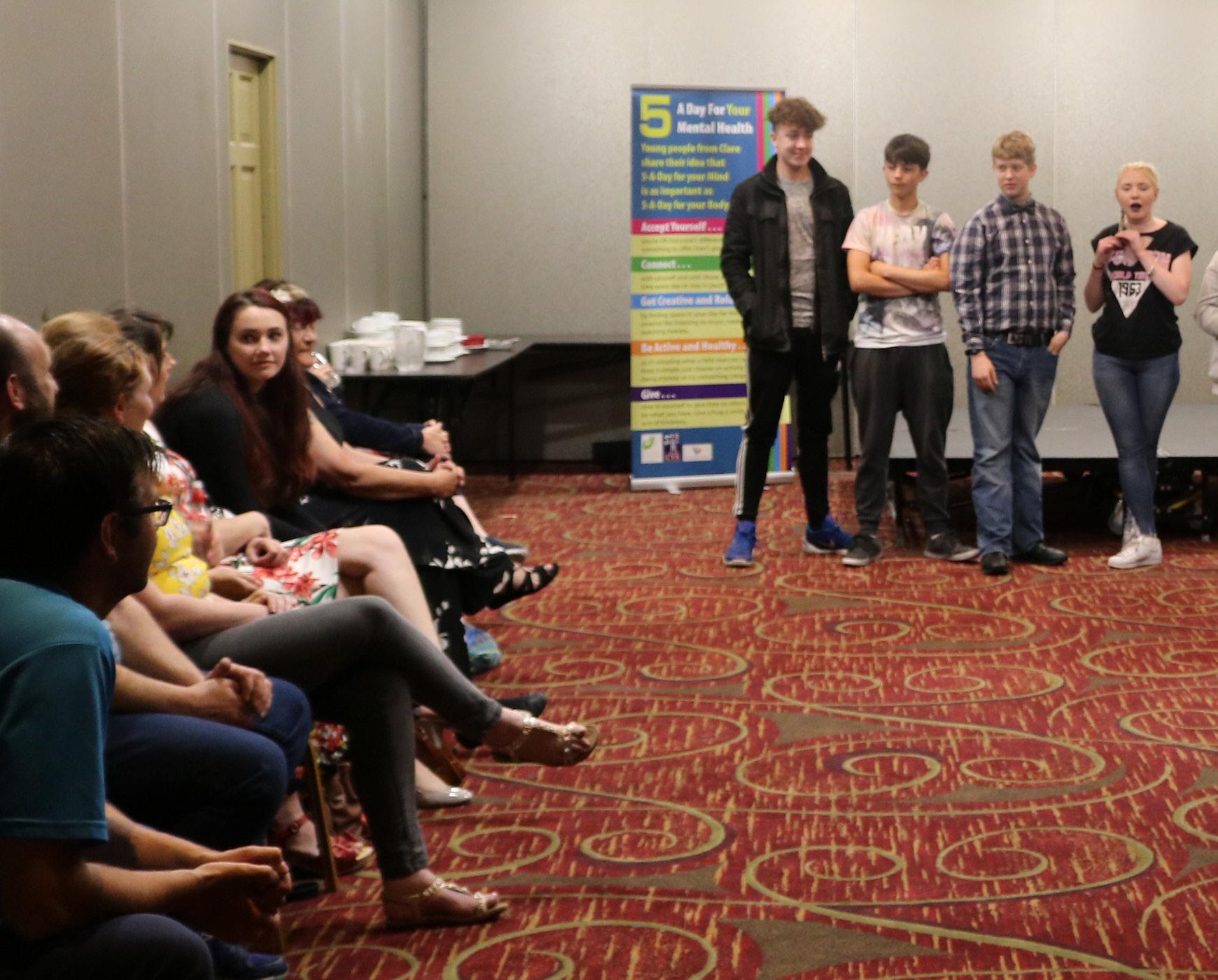
6 minute read
Case Study 3: “Personal and Social Development Group Work Programme (DGW)”
by Theilgaard
CASE STUDY 3 CASE STUDY 3
Advertisement
The Clare Youth Service Personal and Social Development Programme offered young people opportunities to discuss and explore issues that are important to them. The programme has been carefully designed to assist participants with their social and personal development.
When this course was introduced over thirty there was a recognised need for young people to examine areas of importance in their lives through the unique approach of group work.
For staff and volunteers there was a need for training in this method whereby the workers and volunteers move towards realising that they can facilitate the young people to learn more from each other then they can teach the young people directly.
These basic needs are still the case and while the evidence from the programme is very positive some gaps/questions emerged from our baseline examination of the programme which needed to be addressed.
1. Very few volunteers from youth clubs and projects deliver the programme at this time. This is in contrast to the early years.
2. While the evidence of learning and progression by facilitators and young people has been recorded this information has not been collated or presented in a way that could promote the programme to support the training needs of other professionals and volunteers.
3. There is no formal long term record of the impact this programme has had on the lives of those who took part.
The Programme
The programme took place over 10 weeks where trained youth workers and Volunteers worked with
36 | The COURAGE Project

groups of young people on such issues as relationships, friendship and communication skills. Module 1 was primarily concerned with the development of communication skills, an understanding of self and the nature of friendship and relationships. During the transition from childhood to adulthood the understanding and development of positive relationships is essential and this programme aimed to enhance each young person’s ability to develop these relationships.
The groups met for one hour per week and followed a proscribed programme. The format was similar from week to week in order to maintain consistency, build a rhythm and allow for different learning styles to be accommodated. At the start of the session the group would shake hands and re-engage with the Contract they had agreed in week one on how they would work together. Each week there would be a physical exercise such as a “Trust Walk”, an observation game like “Exploring Hands” or team building with “Trust Fall”. There would also be a paper based exercise such as a “Lifespace Diagram” or “Friendship Chart”. Following these there would be a group discussion around the topics explored through the non-formal learning methods and some degree of reflection.
The final session called “The Assembly” brought the different groups together where they presented their learning to parents, guardians and other significant adults in their lives. For the facilitators it provided an opportunity through peer learning and supervision to develop their group work and communication skills. In addition facilitators also had the opportunity for personal development and growth as part of the training programme. The tutor/facilitator group also met once a week.
The COURAGE Project | 37
Recruitment and Training
The timeframe for this Case Study was set to be from August 2016 to January 2017 however the issue of the lack volunteer involvement meant the start of the programme was postponed until January 2017. Further problems with extremely poor weather saw the Tutor Training further delayed until the end of February. Three staff and one volunteer completed the training and set about recruiting groups. Three groups started the programme but only two proved to be sustainable for the whole programme – one led by a staff member and one by a volunteer. While this was very disappointing the two tutors and their groups set about running the programme.
The Learning for the Young People – A Summary
For the young people they were unaffected by the smaller than anticipated overall number of groups as their own groups were self-contained and able to run unhindered.
The learning and progression was recorded through tutors’ notes and with formal questionnaires. Over 90% of participants recorded on written evaluations that they had made progress or felt more confident in the areas of Meeting and Greeting People, Making Eye Contact, Making Conversation and Listening to Others.
In the evaluations one young person said; One group piece of feedback was that they; “Liked the freedom to speak and the new social circle and friends they had made”.
Another comment was that; “Having to do something – the games, exercises, having to interview visitors, - was very constructive and it was important that is was all voluntary”.
The group from East Clare became so used to greeting each other with a handshake that they continued to do this unconsciously when they went to their youth club.

The Learning for the Youth Workers and Volunteers – A Summary
“It was good to be treated like adults and not like children. You could have a point of view and the worker did not try to make you come around to theirs if it was different. You just had to explain what you meant”.
For the tutors it was inevitable with the small numbers an element of the Groupwork learning process during their sessions with the Course Director was lost. However while the three tutors did comment on
38 | The COURAGE Project
this during their evaluations they did also say they learned a lot from each other. One of them, who is very experienced at delivering the Groupwork Module 1, said he was “Surprised that even with such a small number the essence of the tutors supporti,ng and learning from each other with the course director facilitating this rather than “teaching” or having too much input was maintained during the sessions”. coffee moment” - eucourage.eu
Success and the Future
Each week the tutors would record information about their goals for the group of young people as a whole and for individuals in the group. The progress made towards these goals and the experience of the weekly session was discussed at a meeting each week with other tutors and the course director.
As the weeks went on the tutors began to notice the development of their groups and the progress, or in some cases a lack of progress, being made by individuals. They also became aware of their own progression as facilitators and the improvement of their skills and competencies needed for the delivery of groupwork.
The longer version of this case study expands of this experience in more detail including the “Tea or
Despite the difficulty in recruiting trainers for the programme the positive feedback from the young people, their parents and guardians, and the tutors has made the CYS even more determined to revive the DGW programme.
The key reason for this decision and the optimism which surrounds it is that it reaches all young people and those who are disconnected said it gave them a platform to engage with youth services, schools and other organisations.
Also the involvement with the COURAGE project was very important as well. As we learned from our colleagues about their work similarities emerged and none more so than with the MOT Project.
Heading into the 2017/18 academic and youth club year CYS has plans to run the Developmental Group Work Programme in the Community Training Centre with the learners, within the youth work projects and with volunteers in the County’s Youth Clubs.

The COURAGE Project | 39










